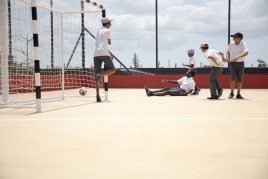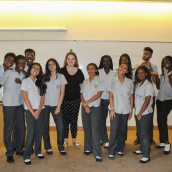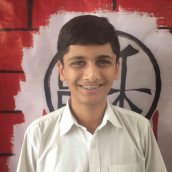On 24 May 2025, Aga Khan Academy Dhaka proudly celebrated the graduation of its inaugural cohort of International Baccalaureate Diploma Programme students in a distinguished ceremony.
Areesh Rehmani: Exploring diverse cultures through languages and science
Thriving on the principles of linguistic diversity, pluralism and academic excellence, the Aga Khan Academy Maputo is the third Academy of the 18 Academies planned worldwide. Its rich atmosphere not only nourishes students to be active learners, but also encourages young minds on how to maintain a balance between sports, academics and cultural activities.
Areesh Rehmani, a grade 6 student at the Academy in Maputo, is one such determined and dedicated student. An active learner and passionate sportsperson, he is significantly involved with academic, leadership and sports activities. Not only is Areesh curious to learn about scientific innovations and technological growth, he is also enthusiastic to learn new languages and gain knowledge about diverse cultures.
One of the languages Areesh is learning is Portuguese. He proudly shares, “Learning Portuguese has had a very good impact on my life. I am now able to communicate well and when visitors come to my school I can converse in both languages (English and Portuguese).” Speaking both languages not only helps Areesh communicate with the local community, but also allows him to deepen his knowledge and learn from members of other communities as the Academy receives many visitors from Britain, Spain, Portugal and other countries.
Areesh also enjoys mathematics and science lessons. He explains, “Learning about new things has made a great difference. It is wonderful that now I am learning things that previously I didn’t know.” He speaks fondly about a science field trip he attended. The field trip was focused on educating the students about the cell theory in biology. He says, “We saw real cells. These living cells were put into slides and after observing them we had to draw them.” Areesh particularly loved this innovative way of learning. He continues, “Doing this activity, I realised how I enjoy drawing too. And since, this was something I had never done before or seen – it was really fascinating.”
On asking him how he likes the Aga Khan Academy Maputo campus, he says, “I really like the campus – especially the library. It’s such a colorful space because it has so many books. I also enjoy the IT room because we can use computers to learn. The science lab is also my favourite as here we can do many experiments, and I find science extremely engaging.” Some experiments Areesh and his classmates have conducted include researching about different organisms, using microscopes, and experiments to solve problems about mass and time.
He believes that classroom lessons such as these have also allowed him to become a better team player. He says, “I would define myself as a sportsman. I feel I am an active person. I enjoy sports activities like cycling, playing football, tennis and others. I’ve also played many football matches.” Areesh believes that sports make him more focused, and he is also happy when he is able to maintain a balance between sports and academics. Areesh has also participated in an inter-school football tournament where he was awarded the Man of the Match Award. Areesh says, “I was speechless, but also very grateful for such a wonderful opportunity.” Areesh’s favorite football player is Cristiano Ronaldo because he is respectful and honest.
In the future, Areesh hopes to visit the other Academies and learn more about other cultures and communities. Although learning about diverse cultures and languages excite him and are his passions, he believes that his career goals are more science and sports inclined. He aspires to be either a software engineer or a footballer. He says how earlier he wished to be an astronaut, but has realised how much he enjoys building new models. One day, Areesh hopes to use technology to create a positive impact in society.
Areesh believes the Academy’s learner profile has helped him define these ambitions and has improved him as a person. He says, “The learner profile helps me, and I learn more when I have the learner profile.” He affirms that adopting the qualities of the learner profile allows him to be a better student and a helpful person. The profile teaches him how to be more collaborative, and he is always ready to help any of his classmates with difficulties in academics or in other areas. Areesh explains, “In MYP (Middle Years Program) we have a whole group and we stay together. We have a united class and we are all very helpful and kind towards each other.” He believes, “Unity is the first step to success. Nothing can be done without unity. We all help each other and we grow together.”
By Khushboo Shah
Harriet Chadwick: Committed to students’ success
Before we enter the 2019 – 2020 academic term, we would like to spotlight a few staff from AKA Mombasa who are going on to pursue new adventures in the upcoming academic year. Here, we take a look at Harriet Chadwick, who worked in the Humanities department, and her time at the Academy.
Harriet Chadwick is from Wakefield in West Yorkshire, England and has worked at the Aga Khan Academy Mombasa for three years as a Global Politics, Integrated Humanities and Theory of Knowledge teacher.
During her time at the Academy, Harriet said she has had a positive experience in her professional and personal life.
“I have learnt a lot about my subject, the IB Diploma Programme and the Middle Years Programme,” Harriet said. “I have enjoyed living in Mombasa and learning more about the local history and culture. I have also enjoyed some of the supportive relationships I have had with colleagues and support staff.”
As she will move on to new opportunities, Harriet said she will miss many things about the Academy and Mombasa in general.
“I will miss the best students who I have ever worked with; they are kind, hardworking and charming,” Harriet said. “I have thoroughly enjoyed learning more about the African continent through the curriculum I have taught and developed in both DP and MYP. I will miss the beautiful, tropical sites of Mombasa, such as the palm trees and beaches, minus the sweaty weather.”
As a teacher at the Academy, Harriet said she was able to help students appreciate Humanities with different learning resources.
“In year 7 I have embedded more creative and interactive learning approaches into the curriculum and contributed new resources,” Harriet said. “I have upheld and improved the popularity of Global Politics across the Academy and supported students to achieve their potential in their assessments. Some of the new approaches I have embedded in my DP teaching are to encourage continuous self-reflection, openness and communication from students about problems they are facing, as I believe mentorship is a key ingredient of good teaching, and the importance of collaboration, as opposed to competition, as a way to succeed.”
Although Harriet was teaching the students on how to succeed in Humanities, she said the Academy was also teaching her on how to succeed and become a better teacher.
“The Academy has taught me how to have more confidence in myself as an educator, that teaching involves multiple roles that I have learnt to balance and how to deliver concept-based, rather than content-based learning,” Harriet said. “Moving to another IB school, I will also feel more equipped to deliver the IB programme and I am very grateful to the Academy for providing me with this opportunity to grow.”
Harriet said she will begin a new teaching position that will help her plan her future better. However, she will be dearly missed by her colleagues, according to Susan Abuto, the head of department for the Humanities department.
“Harriet is one of the most passionate teachers I have ever interacted with in all of my teaching life,” Susan said. “She has a strong commitment towards the students and the lessons she has to deliver. She takes a lot of time and consideration into the quality of work she produces, whether it is a write-up, an assessment, a lesson plan or even departmental duties. She works very well with minimal supervision. While observing her lessons, you can see the student engagement and enthusiasm in the lessons. She motivates students to strive for the best they can achieve. To her students she is a darling. She cares about their welfare - feelings, engagement, performance, association, among other things. We will miss this commitment in the department and I know her students will miss her too.”
AKA Alumni - Mentor Application
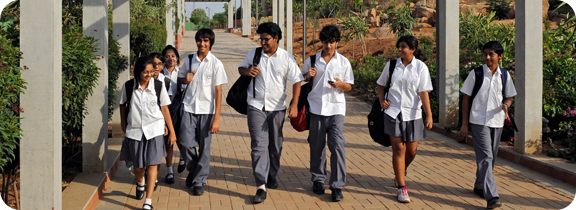
Please fill out the questionnaire below, giving as much detail as you can. If you have any questions, do not hesitate to contact us at: alumni@agakhanacademies.org
Sazil Ramani – an ‘Academy advocate’ for service and social change
– Sazil Ramani, grade 10, Aga Khan Academy Hyderabad.
Sazil joined the Academy at its inception in 2011 and has since discovered many passions and predilections. “After coming here, I realized that I have a talent for photography, and am pretty good at design too. This year, I got to not only act in the annual summer productions as part of our drama class but also designed the posters and brochures. The Academy has given me many opportunities to prove myself, and I am sure this will help me in choosing a career in the future.”
His favourite subject is science, because he likes discovering new things, especially with regard to the realities of life and our surroundings. In particular, he enjoys scientific pursuits because they provide appropriate evidence to back the claims they make, and this makes it possible to persuade others towards positive social, economic and political change. Sazil aspires to be a mechanical engineer.
“As I am a residential student, I get a lot of opportunities to experience different aspects of life at the Academy,” says Sazil. “What I find most unique is the studious and peaceful environment, the greenery around us, the people from different backgrounds and cultures living with us, the facilities provided and the number of opportunities we get to prove our talents.”
Sazil’s biggest role model is His Highness the Aga Khan. “His hard work and dedication, his vision of a better world and his mission to improve the quality of life of those less fortunate. I have a similar vision and that’s why he inspires me.”
Watch a video Sazil made compiling visual anecdotes of diverse service experiences of his classmates and himself at various government school sites.
Walk for Freedom
On October 14th, students from the Aga Khan Academy Mombasa joined tens of thousands of people around the world to fight against human trafficking.
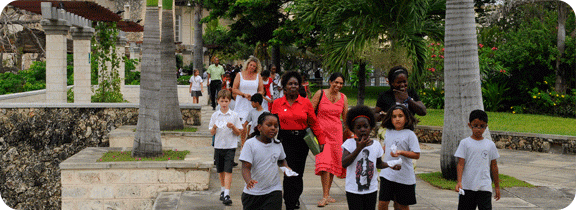
Financial Assistance
Admission to the Academy is based on merit and is means-blind. Students from all socio-economic backgrounds who satisfy the requirements for entry are encouraged to apply.
Partial to full financial aid is available to accepted students with a demonstrated need. However, the Academy cannot guarantee that all applicants will be awarded financial aid. Financial aid awards are reviewed annually and renewed only after reassessment of financial need. Financial aid is mainly for Kenyan nationals but a small number of students from other countries in East Africa have received partial awards.
For information about admission, scholarships and financial aid please contact the admissions office.
Test page - newsletter signup
The Aga Khan Academies periodically send out an email newsletter to share articles of interest and updates about the Academies. Articles from previous newsletters are available here.
Please sign up using the form below to receive future editions of the newsletter.
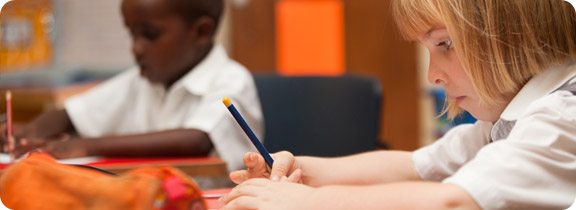
The Aga Khan Academy Curricular Strands
The Aga Khan Academy Curricular Strands are a unique part of the programme offered by the Aga Khan Academies. The strands are areas of learning aimed specifically at developing knowledge, skills and attitudes required by future leaders.
Our goal at the Academies is to develop young people who have strong local roots and are also globally minded. They should be able to become leaders in whichever fields they choose.
To help achieve this goal, we have identified five areas of learning, or strands, that we believe are important for our students. These are:
- Ethics
- Pluralism
- Economics for Development
- Cultures (including Muslim Cultures)
- Governance and Civil Society.
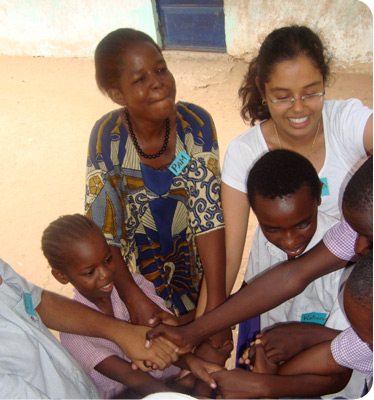 Implementing the Strands
Implementing the Strands
The strands are not taught as independent subjects. Instead, we weave them into the existing subject areas of the academic curriculum. They help inform the selection of content and themes for study. The strands also provide direction for school life outside the classroom in areas such as policy making, recruitment, student life and residential life.
Two of the strands, Ethics and Pluralism, help students develop values and dispositions required by ethical leaders. Our students learn about these areas in theory and are also encouraged to practice what they learn in their everyday lives.
Through the other three strands, our students learn about ideas that are important to the functioning of societies. In particular, they learn about how these ideas impact people’s lives in countries of the developing world. The knowledge they gain helps them understand key issues from both local and international perspectives.
The Strands in Practice
The strands were developed at the first Aga Khan Academy in Mombasa and are designed to be used in different cultural contexts. Teachers from the Aga Khan Academy, Dar-es-Salaam will help tailor the strands for the local environment in Tanzania.
Through the strands, our students develop attitudes and values that will help them throughout their lives. They also gain knowledge and understanding that will allow them to contribute positively to their societies in the future.
For more information on the educational programme offered at the Aga Khan Academy, Dar-es-Salaam, please visit the Academic Programme page.
IB Policies
These policies are mandated by the International Baccalaureate and guide the work we do at the Academy to implement the IB programme standards and practices.
Academic Integrity is a principle in education and a choice to act in a responsible way so others can trust us. It means conducting all aspects of academic life in a responsible and ethical manner. The policy details how we support this. Download the Academic Integrity Policy here.
The Admissions Policy outlines our requirements, expecttations, assessment and processes for students who wish to join the Academy. Download the Admissions Policy here.
Welcome to the Aga Khan Academy, Maputo
Quick links
The Aga Khan Academy Maputo has been awarded IB status by the International Baccalaureate
Multimedia
The Aga Khan Academy Maputo: From Vision to Reality
View all Academies videos
Recent news
Niranjan Seena Suresh, a Diploma Programme 2 student, speaks to Pavan Kumar about how he evolved and grew alongside the Academy over the past 12 years.
Afshine Keshwani, a Diploma Programme 2 student, speaks to Ishita Gupta about how the Aga Khan Academy Hyderabad has transformed her from a shy, curious little girl to a confident and passionate young woman over the past 12 years.
